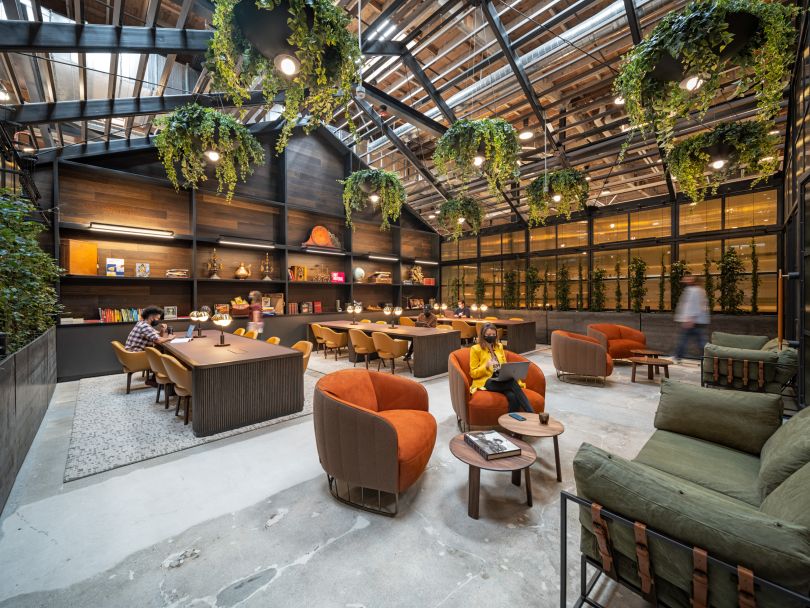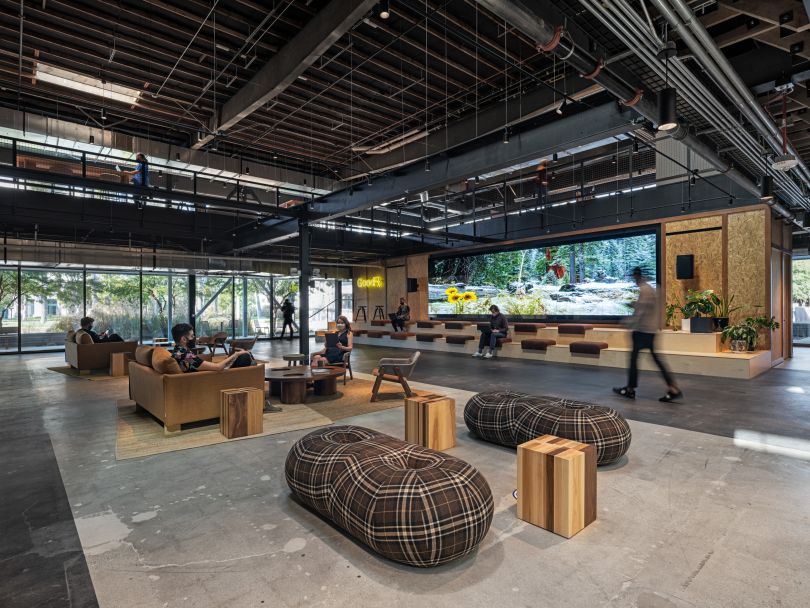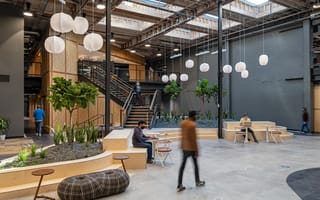When Jasmine Hudson joined GoodRx a year and a half ago, she knew it was a role built on making a difference.
After all, the company had impacted her life long before her first interview.
“Back in 2012, after returning to Illinois, I was a single mom with a lot of financial responsibility and I needed to save where I could,” Hudson said. “GoodRx was there.”
For Hudson and many Americans, including others who work at the company, two of the key avenues that help GoodRx make a difference are affordability and accessibility — crucial benefits in the face of the country’s notoriously costly healthcare industry.
“GoodRx helped me at a time in my life when I really needed a discount,” Hudson added. “I just needed a break.”
As a healthcare marketplace and telemedicine service, GoodRx has helped Americans save over $35 billion so far on prescriptions through resources like savings cards, the GoodRx website and the GoodRx app — all while connecting customers with professional medical assistance. The company invites doctors, pharmacists and journalists to share expert knowledge on medications and important healthcare topics, while also analyzing prescription prices at more than 70,000 pharmacies across the country to help users navigate the complexities of the United States healthcare industry.
“That’s what originally piqued my interest and that’s why I’m here,” Hudson said.
Today, Hudson works as a technical recruiting leader for the healthcare marketplace, and not only helps establish environments of growth for her co-workers, but also assists diverse talent with launching new careers in the healthtech industry — all while working as a fully remote employee. With a commitment to increasing representation through diversity, equity and inclusion (DEI) initiatives as GoodRx has expanded over the years, Hudson has combined her efforts with recently hired Senior Director of DEI Saqi Mehta to reshape healthcare’s future workforce.
FULFILLING COMMON NEEDS, REGARDLESS OF BACKGROUND
“My role here is to help rally and bring the voices of people together and bubble up what’s really important,” Mehta said. “We’re striving to make the industry more seamless and affordable, and ultimately we have to build a diverse workforce in order to serve the customers and clients that we have every day.”
“Just having Saqi here — and creating her position — lets me know that we are forward-thinking and committed to honoring a diverse culture!” Hudson exclaimed.
As part of that focus, GoodRx employees set out in September to attend the Grace Hopper Celebration, the world’s largest gathering of women in tech.
For Mehta, the experience was more than an opportunity to network with other big names and assert brand recognition: It was a chance to put resources back into the hands of everyday Americans impacted by the healthcare industry. This included connecting with historically Black colleges and meeting interested interns striving to make a difference early within their career.
“There was a lot of power in seeing people live and connecting from that perspective,” Mehta said. “So many people came to our booth and said, ‘Because of GoodRx, my son can get his medication’ or ‘When I couldn’t afford healthcare, GoodRx made a huge difference.’”
Built In sat down with Hudson, Mehta and Senior Director of Software Engineering Monica Alvarado to discover why GoodRx is committed to leveling the playing field for job seekers of every background — and all the ways teams are embracing DEI both internally and externally to alter the future landscape of healthcare.

How does GoodRx’s mission align with your own personal passions in your career?
Sr. Director of Software Engineering Monica Alvarado: When I first heard about the opportunity at GoodRx, I immediately thought that if I’m going to be doing software engineering and advancing projects, why not focus on something that will benefit people? It was an easy decision to join because I was so aligned with the mission of the company. I really thought I could use my talent to help others, because this is a problem that kind of affects everybody, even if you have insurance. In fact, it was the reason why I chose this job over a couple of others.
Sr. Director of DEI Saqi Mehta: My background has largely been in the recruiting space, and I organically became passionate around DEI because of a lack of diversity that I saw — especially a decade ago when we were first starting to have these really important conversations. What I really appreciate is that this is the first time that they’ve had this particular role open at GoodRx, and I appreciate that they prioritize that work. There’s a lot of unique challenges and a lot of ways that we can chart that path, so I really love the opportunity to grow and navigate something from the ground up.
Technical Recruiting Manager Jasmine Hudson: Diversity is always top of mind, as is asking questions like “What have you done at previous companies regarding diversity initiatives?” This ensures that the leaders, recruiters and sponsors we hire are going to be committed to moving that forward. We’ve had initiatives put in place to ensure that we do have a diverse pool of candidates. The company from the top down has been so invested and committed to it, and we follow suit. It’s definitely changed the way that we look internally.
“We’re striving to make the industry more seamless and affordable, and ultimately we have to build a diverse workforce in order to serve the customers and clients that we have every day.”
Why is embracing DEI and belonging important to GoodRx’s mission and service?
Mehta: First of all, I think it’s the right thing to do in order to serve our customers and clients. We have to mirror that demographic in our workforce. A lot of times in DEI work, we over-index on gender and ethnicity — which I think that’s really important — but we also need to focus on intersectionality by thinking about background experience. Maybe someone who’s a boot camper or a mom returning to the workforce, or formerly incarcerated people — how do we think innovatively about what a background of diversity of thought and experience entails?
For example, we’re going to be launching community resource groups formally come January 1, and we’re going to have more unconscious bias training, interview training and getting everyone to the baseline levels of understanding that we’re from different places in the United States with different ideologies and perspectives. Obviously, it’s the right thing to do but it’s also good business — diverse teams perform at least 40 percent better.
Hudson: Every quarter, GoodRx employees get to nominate nonprofit organizations to receive $25,000 in donations. We’ve donated probably around $250,000 to over 30 organizations so far, including a future Black physician scholarship program addressing racial inequalities in healthcare and a pharmacy innovation scholarship program. Our charitable arm and social impact team, GoodRx Helps, will also have pop-up clinics around the Los Angeles area and employees can volunteer to help.
BUILDING COMMUNITY THROUGH RESOURCE GROUPS

How does GoodRx promote internal growth for employees?
Hudson: Internal transfers are highly encouraged here. We want to see people grow into whatever they want — even when management is going through goal planning and goal setting, their focus is on where do you want to be? Whether it is within your current role trajectory or in another department, we help you create a plan to get there. I personally have grown leaps and bounds since joining because of mentorship opportunities, and because things like curiosity and asking questions are encouraged.
Alvarado: The managerial staff is very supportive of providing opportunities if you display some type of interest. In my personal experience, I was leading a couple data teams and we finished a project at the end of last year that caught leadership’s attention because they didn't think that we had the skill sets to accomplish this specific goal — and it was very successful. As a result of that, I ended up getting an additional two teams in a completely different focus this year. If you nurture the teams and display qualities of not being afraid to take on challenges, you’ll be given opportunities beyond what you expect.
“So many people came to our booth and said ‘Because of GoodRx, my son can get his medication’ or ‘When I couldn't afford healthcare, GoodRx made a huge difference.’”
What do you believe makes GoodRx’s company culture so unique compared to other organizations out there?
Mehta: At the heart of everything is the level of empathy and understanding. There’s a difference between sympathy and empathy: Sympathy is looking down and witnessing if somebody has a rough experience, but empathy is really trying to relate and understand at just a human level. I feel like our people just have that in just bushels and loads and just such an amazing place.
Alvarado: We are very welcoming of ideas and thinking about how to always do better. We know that healthcare is complicated in the U.S. Our leadership is always encouraging us to think about how we can expand not just our talent, but also the areas that we go into. It’s about how we can improve people’s lives as opposed to — and I know this is going to sound funny — making more money. The framing of the problem inspires focusing on doing good.
Hudson: For anyone who wants to bring their talents and get behind a real mission that’s affecting so many Americans, it’s pretty powerful to push these efforts forward. We have a human-centric approach to everything — literally everything — and I think that we’ve all done a good job of creating safe spaces here. I feel embraced by my team and my leaders, and they don’t mind if my son ever pops up on the screen while we’re working.
I’ve been in the industry for quite some time, and I’ve supported a ton of companies. GoodRx is very different and I feel very lucky to be here.








